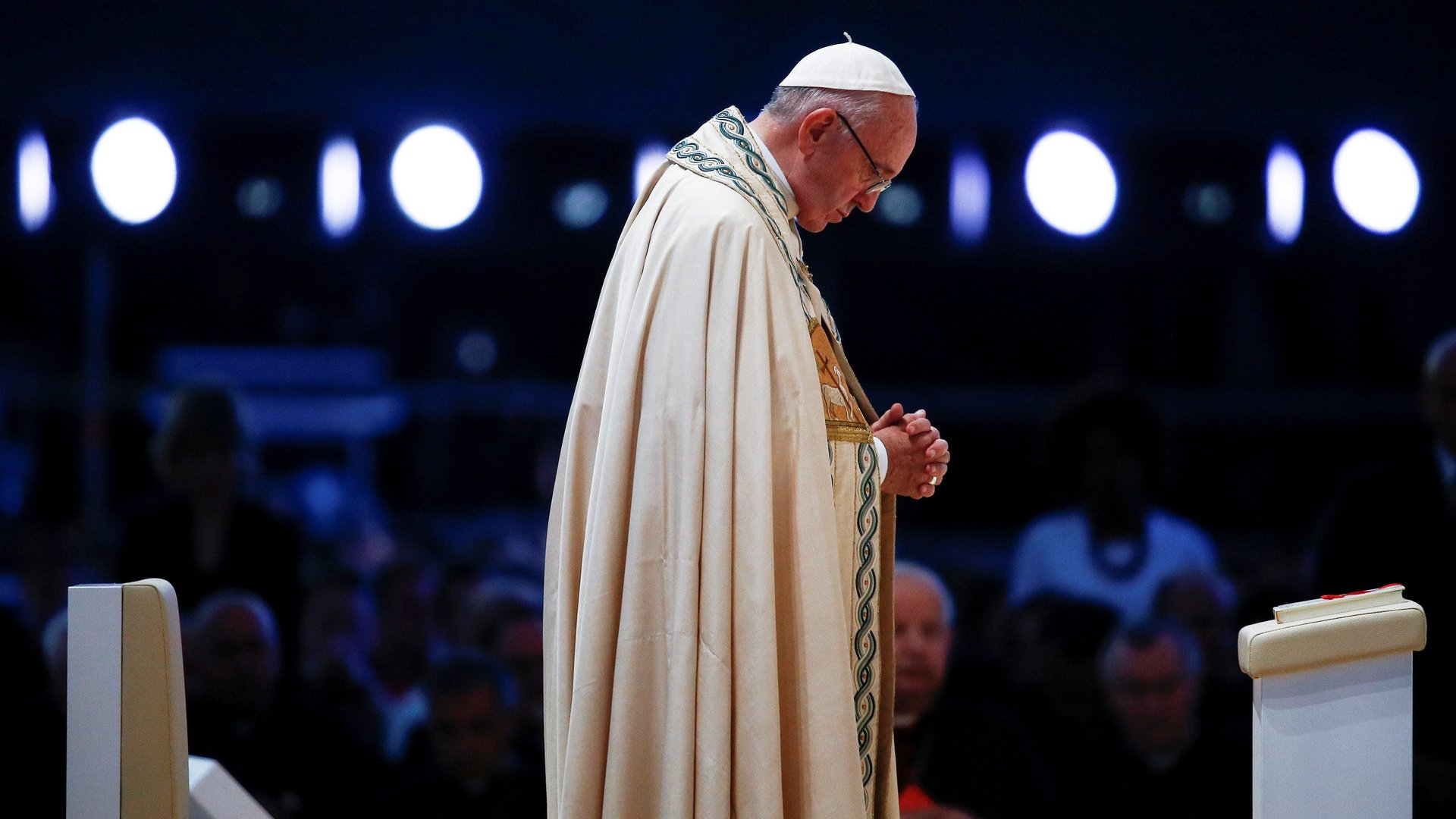Why is this progressive pope such an outspoken transphobe?
Pope Francis is widely recognized as one of the most progressive popes the Catholic church has had: he openly critiques capitalism, is a strong promoter of inter-faith dialogue, and has offered words of acceptance even to homosexuals, who have traditionally been ostracized by the Catholic church. And yet, there is something on which he seems to be uncharacteristically conservative: transgender people, and gender theory in general.


Pope Francis is widely recognized as one of the most progressive popes the Catholic church has had: he openly critiques capitalism, is a strong promoter of inter-faith dialogue, and has offered words of acceptance even to homosexuals, who have traditionally been ostracized by the Catholic church. And yet, there is something on which he seems to be uncharacteristically conservative: transgender people, and gender theory in general.
Speaking to a group of bishops during his trip on Poland last week, The Associated Press reports, the pope attacked gender theory—particularly the idea that it should be taught in schools. “Today, in schools they are teaching this to children—to children!—that everyone can choose their gender,” said the pope, calling it a form of “ideological colonizing” by “very influential countries.”
Francis recalled debating the issue of gender theory with his predecessor, Pope Benedict: ”God created man and woman,” Francis recalled Benedict saying. “God created the world this way, this way, this way, and we are doing the opposite.” Pope Francis told his audience in Poland that he agrees, concluding that being transgender is part of “a moment of annihilation of man as image of God.”
The transcript of the pope’s remarks was released just a day after he announced a gender-balanced commission to study “the question” of offering women a more prominent role in the church; the juxtaposition highlights the contrast between Francis’ position on transgender people and most other issues.
According to Cristina Traina, a professor of religious studies at Northwestern University the pope’s position on homosexuals is that “they are on a path to god, like everyone else, and they are not excluded for [their sexual choices].” But, Traina concedes, “[transgender issues] somehow seem to have touched a deeper nerve in him than gays have.” This may, at least in part, be cultural: the pope “has a very Latin-American understanding of gender as binary and natural,” Traina explains. While protected by the law in many countries, the attitude towards LGBT people in Latin America is conservative, and according to data collected by Trans Respect, violence against trans people is more common in this region than almost anywhere else in the world (though data for Africa was not available).
The pope, she says, also views being transgender as a cultural imposition. The pope often criticizes ideological colonizing, chastising wealthier countries for imposing their values world views on poorer countries through education as a condition of aid. ”Transgender issues have been presented to him as being imposed unjustly,” Traina says, and “he doesn’t have a deep understanding of the transgender experience.”
But this doesn’t mean he would otherwise be more accepting. As Traina puts it, the pope likely believes ”a transgender person [is] really negating the natural intended order.”
And, Traina notes, this isn’t really out of line with the pope’s broader attitudes towards gender: for example, while “he is moving in a direction many would consider right,” Traina says, he has still drawn some pretty significant lines when it comes to opening the church to women. While he is considering allowing women to be ordained as deacons (like many married men already are, and who cannot preside over mass), Francis is in no way signaling he’d want to see them priests. And though he has expressed no judgement towards gay and even said Christians should apologize to them for past poor treatment, he is adamant that gay unions should not be allowed.